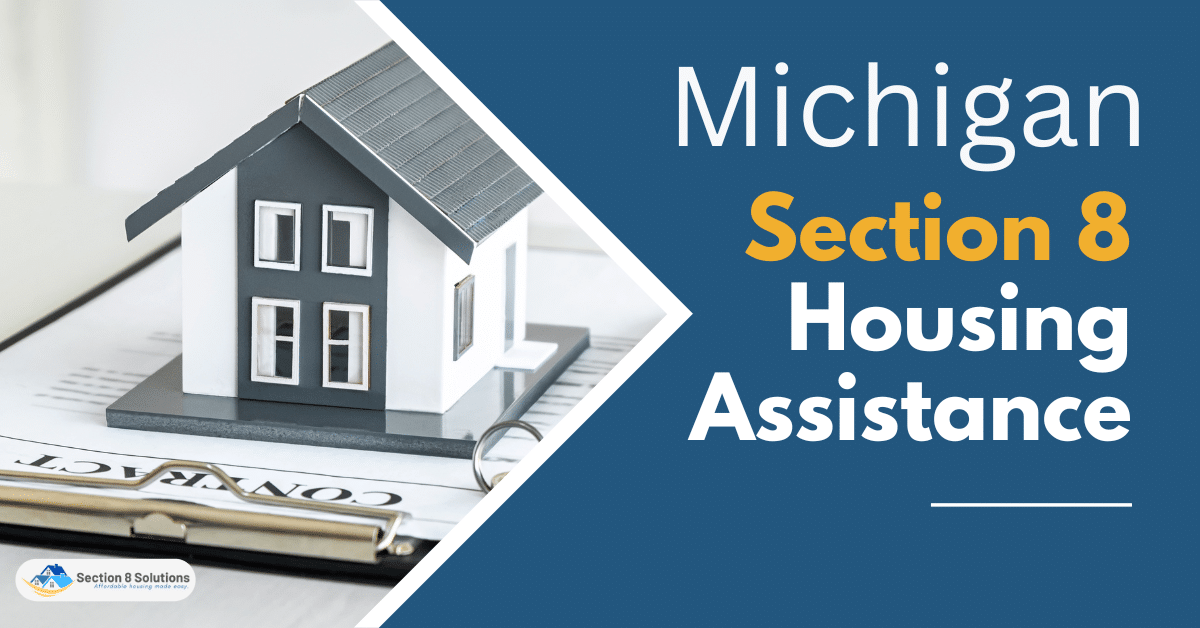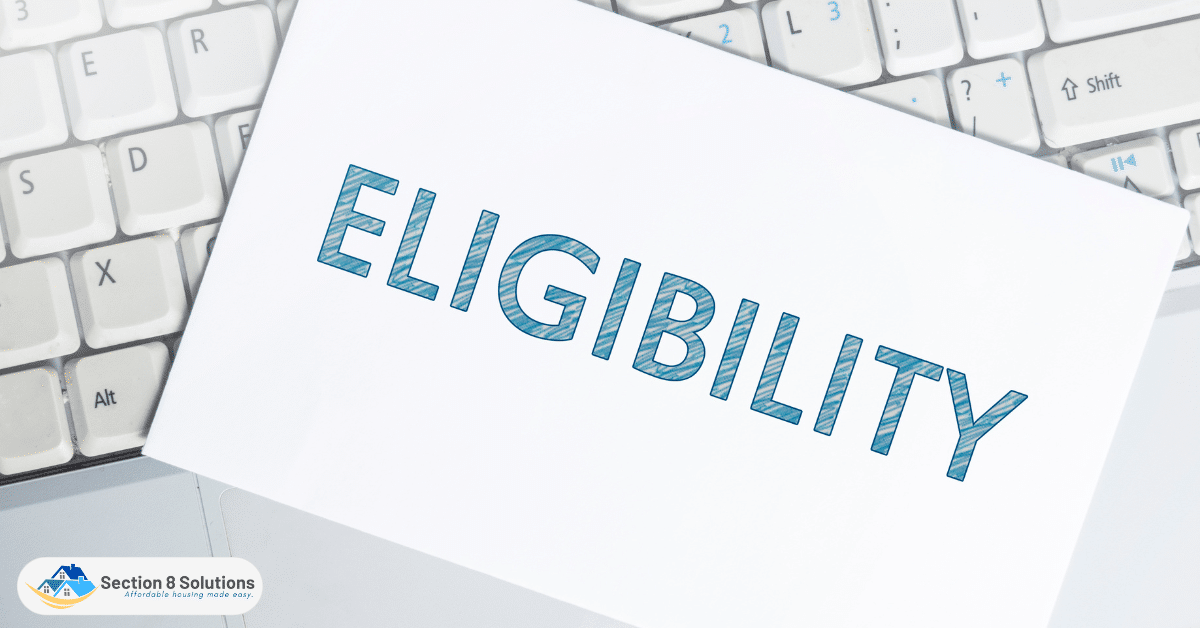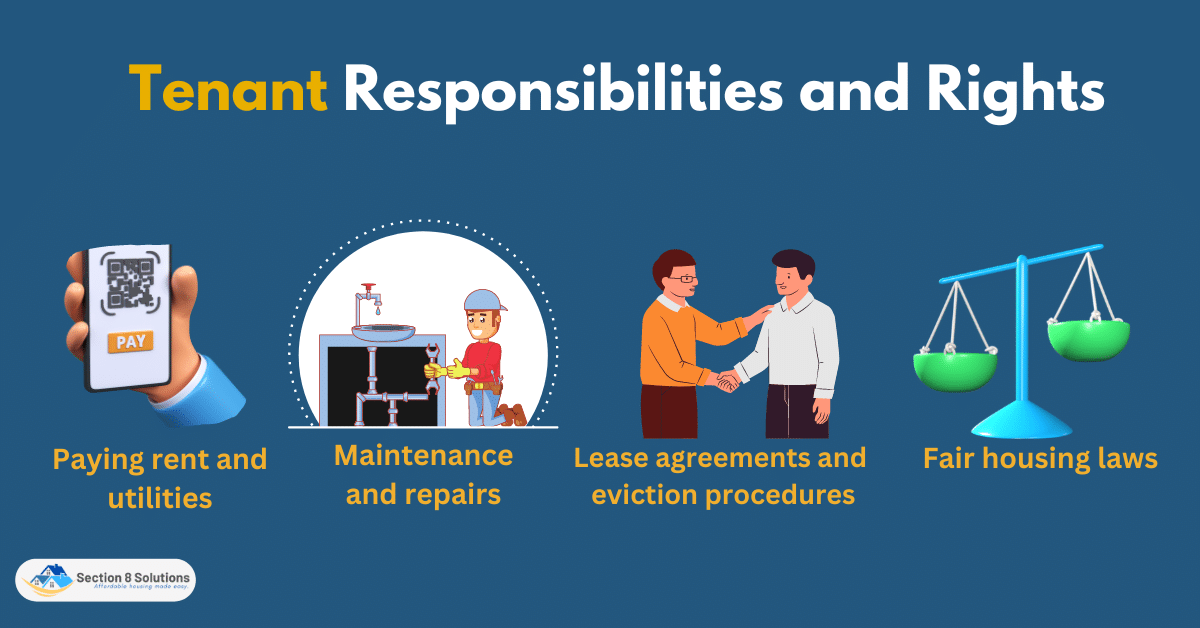Michigan’s Section 8 program provides financial assistance for low-income individuals and families to obtain affordable housing. Despite its challenges, the program has helped many Michigan residents secure stable housing.
This blog will provide an overview of the eligibility requirements, application process, benefits, and challenges of the Section 8 program in Michigan. We will also explore the responsibilities and rights of tenants in the program, as well as the potential solutions to common challenges faced by Section 8 participants in Michigan.

Section 8 Eligibility in Michigan
The Section 8 program is known as the Housing Choice Voucher program in Michigan. The federal Housing and Urban Development (HUD) program funds it, and the Michigan State Housing Development Authority administers it (MSHDA). HUD establishes eligibility income restrictions for each state.
The three income limits in Michigan are as follows:
For a family of four
- FY 2017 Low-Income (80%) Limit (LIL) $51,300
- FY 2017 Very Low-Income (50%) Limit (VLIL) $32,050
- FY 2017 Extremely Low-Income Limit (ELIL) $19.250
Those amounts are based on the average income in the state. They can vary a little depending on the county. It is also important to note that income is not the only requirement to be met. Eligibility also depends on the following:
- US citizenship or legal alien status
- Criminal background check
- Current with child support payments
Priority is given to the homeless, people with small children, pregnant women, the elderly, and the disabled.
Eligibility for Michigan’s Section 8 program is based on income and family size. To determine if you qualify for financial assistance to obtain safe and decent housing, contact the Michigan State Housing Development Authority or a local housing agency.

Apply for Section 8 housing in Michigan?
Applying for Section 8 housing assistance in Michigan can be a crucial step for individuals and families seeking affordable housing. The program provides financial assistance to eligible participants, making it easier for them to pay rent and maintain stable housing. However, the application process can be complex, and understanding the eligibility requirements and criteria is essential to ensure successful enrollment. You can get started with the application process online with the Waiting List Pre-application.
The following information will be required:
- Full legal name
- Social Security number
- Date of birth
- Annual Income from all sources (before taxes or deductions)
- If necessary, contact information for the person who will assist with completing future paperwork
There are a couple of important disclaimers. Filling out the form does not guarantee you a place on the waiting list. And you can only apply once. Additional applications will not be accepted if you have already applied.
When the waiting list is open, you can apply at any time. Apply to the county where you now live or work for the highest possibility of being placed on the waiting list. You will be sent a confirmation number. You can then check your waiting list status within 48 hours.

Michigan Section 8 Landlord
To receive payments from the MSHDA, you must provide documentation that you are the legal owner of the rental and that all property taxes have been paid in full. A copy of an insurance policy that indicates the landlord as the owner of the property is a readily obtainable document that would serve as proof. A statement from the local tax authorities confirming your current status is sufficient for tax verification.
The rental must pass inspection in order to be eligible for Section 8 payments. The Housing Choice Voucher program gives renters a lot of options. They can even stay in their existing rental if it passes HUD requirements. The property will be inspected on an annual basis.

Section 8 Waiting List Michigan
There is no predetermined time frame for how long you will be required to wait on the waiting list before being accepted into the program formally. You also cannot submit an application whenever and whenever you please. You can only submit an application to a county that has a waiting list that is currently open.
The Housing Assessment and Resource Agency Service Contact List compiles contact information for organizations that are able to determine whether or not applicants meet the criteria for homeless priority. Veterans experiencing homelessness may be eligible for VASH vouchers.

Receiving Your Section 8 Housing Choice Vouchers
Making sure that your application for Section 8 Housing Choice Vouchers is complete and accurate is the single most critical thing you can do to increase the likelihood that you will be approved for these vouchers. Any application that contains inaccurate information or any discrepancy will be automatically rejected. Hence, before you begin filling out the application, you should be certain that you have all of the required information. Also, check for any possible mistakes.
You are able to contact and seek assistance in completing the application if you have a disability or if you feel for any other reason that you require assistance in doing so. There will be accommodations made, so long as they are reasonable. Keep in mind that you will only be able to submit one application. It is preferable to take a modest amount of additional time in order to receive assistance and do the task correctly as opposed to rushing through it and making a mistake.

Tenant Responsibilities and Rights
Tenants in the Section 8 Housing Assistance program in Michigan have specific rights and responsibilities they need to be aware of. Understanding these can help ensure that both the tenant and landlord have a positive experience. In this blog, we will discuss the key responsibilities and rights that come with being a tenant in the program.

1. Paying rent and utilities:
- Tenants are responsible for paying their portion of rent and utilities on time.
- Failure to pay rent may result in eviction or termination of the Section 8 voucher.
- If tenants experience financial hardship, they can request a change in their payment plan.
2. Maintenance and repairs:
- Tenants must maintain their housing unit in good condition and promptly report any necessary repairs.
- Landlords are responsible for making necessary repairs and ensuring the unit meets habitability standards.
- Tenants should document any requests for repairs and follow up if necessary.
2. Lease agreements and eviction procedures:
- Tenants must comply with the terms of their lease agreement.
- Landlords cannot evict tenants without following proper legal procedures.
- Tenants have the right to dispute an eviction in court.
4. Fair housing laws:
- Tenants have the right to live in a unit free from discrimination based on race, color, religion, national origin, sex, familial status, or disability.
- If tenants believe they have experienced discrimination, they can file a complaint with the appropriate agency.
Understanding tenant responsibilities and rights is crucial for a successful experience in the Section 8 Housing Assistance program in Michigan. By knowing what is expected of them, tenants can take steps to maintain their housing unit and ensure a positive relationship with their landlord.
Benefits and Challenges of Section 8 Housing Assistance in Michigan
The Section 8 Housing Assistance program in Michigan has been a vital resource for low-income families, elderly individuals, and persons with disabilities seeking affordable housing. While the program offers many benefits, there are also challenges that need to be addressed. In this blog, we will explore the pros and cons of the Section 8 program in Michigan, as well as potential solutions to common challenges faced by program participants.
Pros of Section 8:
- Provides financial assistance to eligible participants to obtain safe and decent housing
- Offers flexibility in housing choice, as participants can choose their own housing unit
- Helps participants maintain stable housing, reducing the risk of homelessness
- Can lead to improved health and education outcomes for families and children
Cons of Section 8:
- Limited funding may result in long waiting lists
- Program eligibility requirements can be restrictive
- Some landlords may be hesitant to participate in the program, limiting housing options for participants
- Eviction rates for Section 8 participants may be higher than for non-participants
Potential solutions to challenges:
- Increase funding to reduce waiting lists and expand program eligibility
- Provide incentives to landlords to participate in the program
- Increase tenant education on their rights and responsibilities to reduce eviction rates
- Provide additional supportive services to participants, such as job training and counseling services, to increase self-sufficiency
Overall, the Section 8 Housing Assistance program in Michigan offers many benefits to eligible participants seeking affordable housing. However, there are also challenges that need to be addressed to ensure that the program continues to meet the needs of low-income families and individuals. By implementing potential solutions, we can work towards a stronger and more effective Section 8 program in Michigan.

Conclusion
The Michigan Section 8 Housing Assistance program has been a lifeline for many low-income individuals and families seeking affordable housing in the state. Understanding the eligibility requirements, application process, benefits, and challenges of the program is essential to ensure that participants have a positive experience.
By knowing your rights and responsibilities as a tenant in the program, and by recognizing the potential solutions to common challenges, we can work towards creating a stronger and more effective Section 8 program in Michigan. With the right resources, tools, and knowledge, individuals and families can access safe, decent, and affordable housing in the state.










